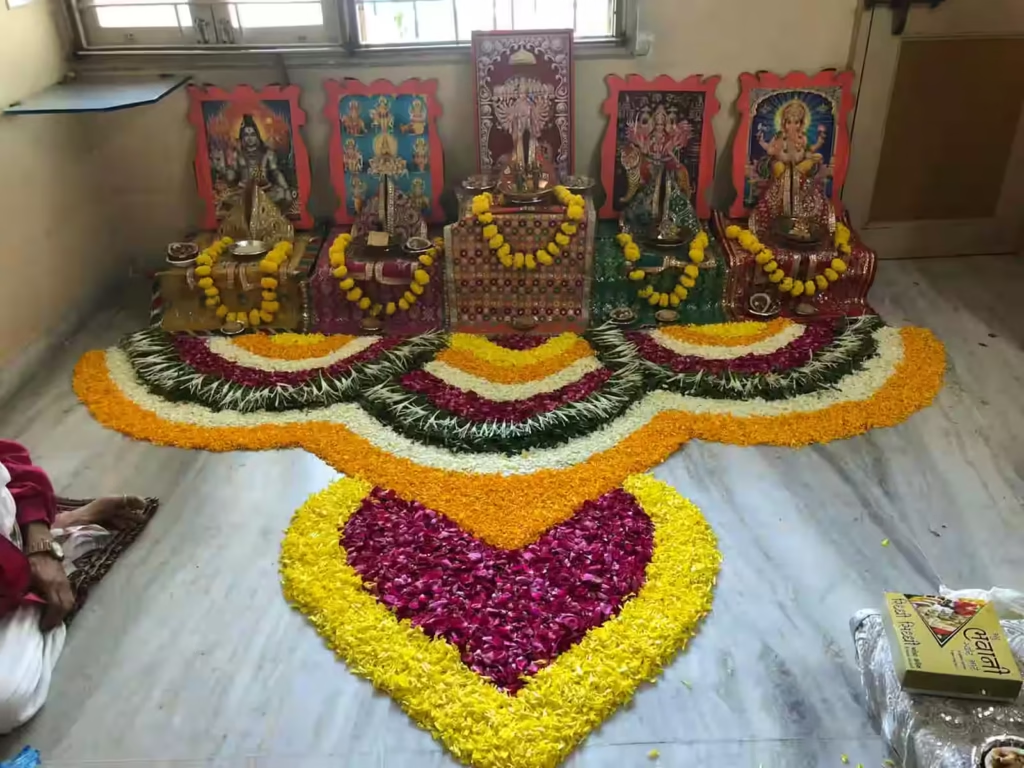Why You Should Perform Vastu Shanti Pooja Before Entering a New Home
Moving into a new home is a major life milestone — a fresh beginning filled with dreams and aspirations. But have you ever wondered why many families in India perform Vastu Shanti Pooja before stepping into their new home?
This ancient Vedic ritual is not just a tradition but a spiritual science rooted in Vastu Shastra. It aligns your home with positive energies and safeguards against negative forces, ensuring a peaceful, prosperous living environment.
In this blog, we’ll explore the significance, benefits, ideal timings, and steps involved in Vastu Shanti Pooja — and why skipping it could disrupt the harmony of your dream home.
What is Vastu Shanti Pooja?
Vastu Shanti Pooja is a sacred Hindu ritual performed to appease the Vastu Purusha (energy deity of the house) and neutralize any negative effects due to architectural flaws or improper alignments.
It’s especially important when:
You move into a newly built house
You buy a pre-owned property
You make major renovations or extensions
This pooja invokes blessings from the Pancha Bhootas (five elements) and planetary forces, ensuring spiritual purification and cosmic balance.

Why is Vastu Shanti Pooja Necessary?
1. Cleanses Negative Energies
When a house remains vacant or is built on land with unknown history, it may harbor negative energies. Vastu Shanti Pooja purifies the space spiritually.
2. Balances the Five Elements
According to Vastu Shastra, every structure is composed of earth, water, fire, air, and space. This ritual aligns these elements to invite health, wealth, and happiness.
3. Reduces Vastu Dosh (Defects)
Due to construction limitations, not every house follows perfect Vastu principles. This pooja helps nullify doshas and prevents future mishaps.
4. Brings Peace and Prosperity
By seeking divine blessings, homeowners create an environment of inner peace, emotional well-being, and financial growth.
5. Boosts Mental & Spiritual Health
The chants, homas, and rituals have a calming effect on the mind, reduce stress, and elevate spiritual energy in the home.
When Should You Perform Vastu Shanti Pooja?
The most auspicious time is during a Griha Pravesh Muhurat, as calculated by a qualified priest or astrologer. Favorable dates often fall during:
Akshaya Tritiya
Vasant Panchami
Dussehra
Navratri
Any Shubh Muhurat avoiding Rahu Kaal and Amavasya
Who Should Perform the Vastu Shanti Pooja?
Anyone moving into a new home should perform this ritual — regardless of the home’s past occupants. Whether you’ve built your own house or purchased an apartment, this pooja is recommended before taking residence.
What Happens During the Pooja?
Key Rituals Involved:
Ganapati Pooja: Removes obstacles.
Kalash Sthapana: Establishes sacred energy.
Navagraha Pooja: Pacifies planetary influences.
Vastu Purusha Mandala Pooja: Central part of the ceremony.
Havan (Fire Ritual): Spiritual purification through fire.
Pradakshina & Aarti: Completion and blessing.
These are typically conducted by certified Vedic priests well-versed in Vastu Shastra and Sanskrit mantras.
Where to Book Vastu Shanti Pooja Services Online?
Booking a knowledgeable and experienced pandit can be tricky. That’s where Poojavara.com helps.
They offer:
Verified, certified Vedic priests
Custom puja kits & samagri
Pan-India service
Transparent pricing and hassle-free booking
Conclusion
Your home isn’t just a physical structure — it’s a space where you nurture relationships, create memories, and build your future. Performing Vastu Shanti Pooja before moving in ensures that your home is filled with positivity, protection, and prosperity from day one.
✅ Let divine energy flow in.
✅ Clear karmic and architectural imbalances.
✅ Lay the foundation for a blissful life.
📞 Ready to Book Your Vastu Shanti Pooja?
👉 Visit Poojavara.com to book a certified pandit online for your Vastu Shanti Pooja with samagri and complete support — anywhere in India.
FAQs About Aksharabhyasam
Yes, but it is ideal to perform it before Griha Pravesh. Post-entry pooja can still help balance energies but may not be as effective.
Yes. Even apartments are affected by Vastu principles and may inherit defects due to layout or land energy.
Griha Pravesh is the housewarming ritual to mark entry, while Vastu Shanti is specifically for energy purification and correcting doshas.
Usually 2–4 hours, depending on the rituals included and the number of priests.


